TAFE jobs that enjoy a six-figure salary
Aussies are being urged to consider taking up a trade or a tech qualification, with a TAFE certificate now the fastest ticket to a six-figure salary. See the top 10 jobs paying $100k or more that you don’t need a university degree for.
NSW
Don't miss out on the headlines from NSW. Followed categories will be added to My News.
Low income Aussies are being urged to consider taking up a trade or a tech qualification, with a TAFE certificate now the fastest ticket to a six-figure salary.
The latest figures from online job marketplaces show demand has been strongest in service and care industries as well as automotive trades, with listings in those sectors up significantly year-on-year.
There’s been a boom in job ads and a pay bump in project management and construction, while the average advertised salary for a massage therapist has increased from $51,000 per year in June 2022 to $134,400 last month on the Adzuna platform.
“A university degree is no longer the only ticket to a high paying career, as more industries look to expand their talent pools to a more diverse range of applicants and offer on the job training,” Adzuna Australia country manager Tej Deshpande said.
“For many of today’s trending roles, knowledge and skills are far more important than a formal degree. The IT industry is a good example of this.”
Senior economist at Seek Matt Cowgill said the fastest wage growth over the past three years through the Covid pandemic has been among traditionally low-paid professions, despite some “slight moderation” in the labour market over the past month.
“What that to me reflects is that demand for labour has been relatively strong at the lower paid end of the spectrum and has outpaced demand at the highest paid level,” he said.
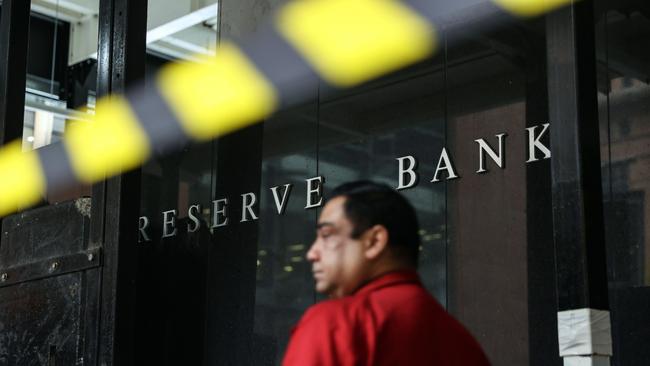
“The strongest demand for workers in total has been for admin assistants, age and disability support, childcare workers, automotive trades, warehouse workers, (and jobs) like that. Most of those are not fields that require tertiary qualifications.”
However, the boom in bonuses for unskilled and low skilled workers may not last, he cautioned, with a slowing of economic growth forecast by the Reserve Bank.
“There’s been so much that’s been strange about the labour market over this period since Covid hit that we’re not quite sure how good a guide the past will be to what happens next,” Mr Cowgill said.
Skills Minister Tim Crakanthorp said TAFE offers high school kids a faster route into some of the best paying growth industries in the state than university pathways, in part because students can start their training during their HSC years.
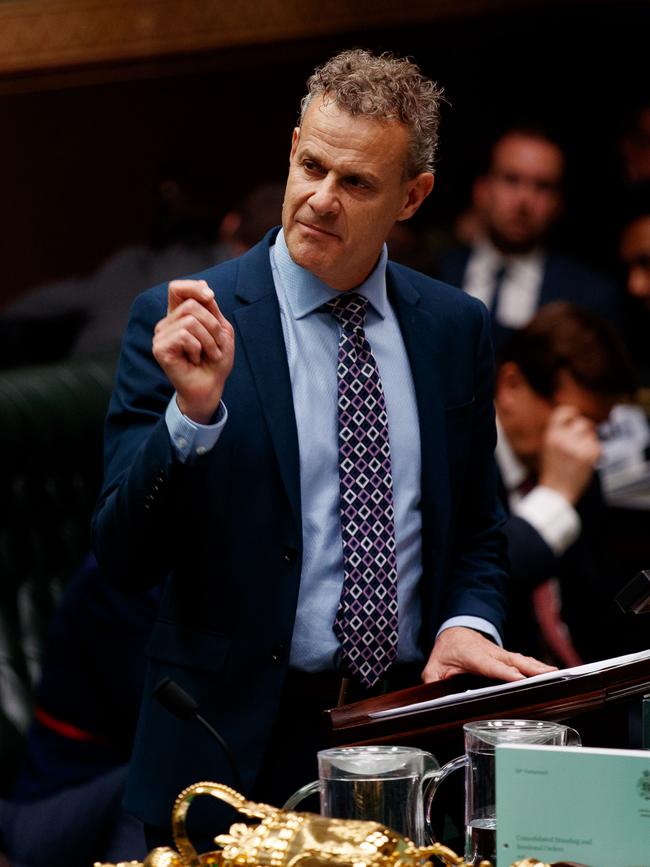
“NSW desperately needs more highly skilled workers from tradies to cyber security experts,” Mr Crakanthorp said.
“While careers in traditional trades such as construction, welding, and auto mechanics can be quite lucrative, TAFE NSW also offers non-trades qualifications in business, information technology, accounting and mining that graduates can use to establish fulfilling, high paying careers.”
More than 70 per cent of apprentices are TAFE-trained, he said.
Here are 10 careers where a diploma from TAFE or on-the-job training alone can put you on a path to more than $100,000 per year:
Air Traffic Controller: $105k – $200k
Air Traffic Controllers (ATCs) are the men and women on the ground who guide aircraft pilots through safe takeoffs and landings, and prevent planes from colliding midair. It’s a high pressure job but it pays well, and you don’t need a tertiary qualification of any kind to do it. Airservices Australia offers paid training for successful applicants, and after two to three years on a trainee wage of $50-$80,000 a fully qualified controller will earn a starting wage of $104,973.
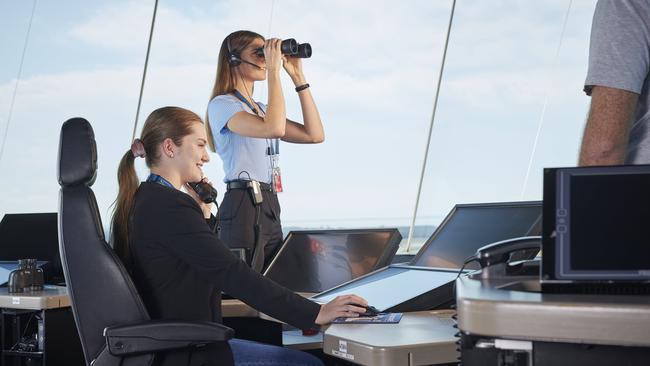
To become an ATC trainee, you have to be at least 18 years old and have finished Year 12 with a pass in English and maths. Airservices Australia “measure your ability to follow written instructions, your numerical and verbal reasoning ability, your spatial awareness and if you can work with complicated patterns and check data” via online tests to determine your suitability.
Bus driver: $80k – $100k
Bus drivers are in extremely high demand, even more so than train drivers and truckies, especially in Sydney where shortages have forced services to be cancelled, timetables amended and schoolkids to miss out on excursions.
It’s never been easier to get a job as a bus driver, with anyone who holds a full car licence now eligible and application fees waived. The crisis has also prompted operators to offer cash incentives like big sign-on bonuses and salaries up to $63 per hour for experienced drivers.
While the average salary ranges from $70,000-$85,000, $100k plus salaries are not unheard of.
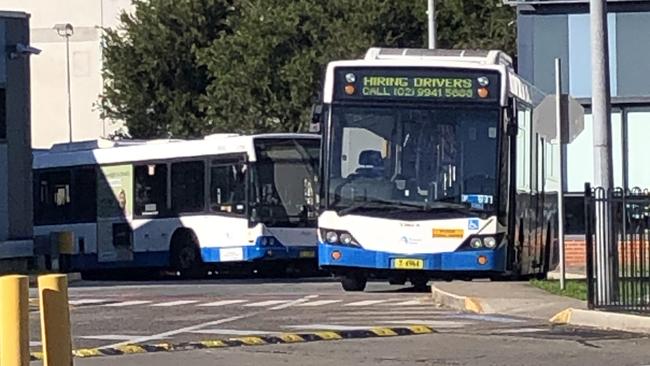
Truck driver: $100k – $150k
Current nationwide shortages mean if you’re thinking about becoming a truck driver, you can cash in on the employment bonuses – including massive salaries – being offered by understaffed transport companies.
Multi Combination drivers (truckies qualified to tow one or more trailers over nine tonnes) can earn a typical salary of $115k, and there are over 1000 jobs currently listed on Seek, but to hold an MC license you must have previously held other heavy vehicle licences. Lower license classes usually pay slightly less, but some operators are nonetheless offering $100k+.
Electrical lineworker: $100k – $130k
Electrical work of any kind is a fairly safe bet when it comes to remuneration, with the average sparky’s salary ranging from $85-$105k. There’s a financial advantage to specialising however, and jobs for distribution lineworkers – those who install and maintain underground and overhead powerlines – are going for $130,000 plus.
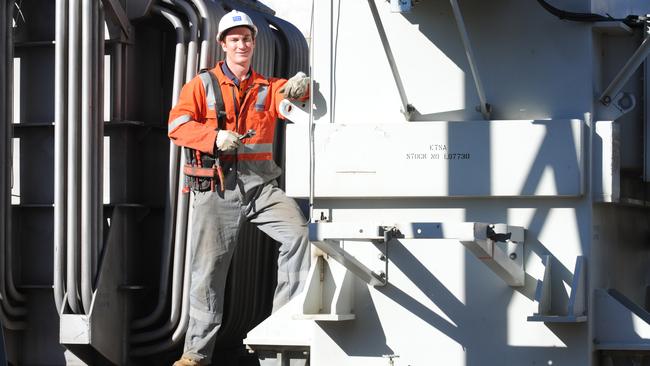
To be a linesman you’ll usually need a Certificate III or IV in Distribution (Powerline), and the work entails installing, maintaining, and repairing electrical distribution and transmission systems, stringing wire and cables between poles, towers, pylons and buildings and testing and inspecting the powerlines and equipment.
Miner’s assistant (Drilling offsider): $100k – $180k
A driller’s offsider is one of the easier jobs to get your start in the mining industry due to lack of experience or qualifications required, but it also involves extremely tough, demanding physical labour and it’s not a job for the faint of heart (or faint of strength). The upside is that you can start on a $100k paid traineeship and after two years once qualified, as an experienced driller you could be earning upwards of $180k.
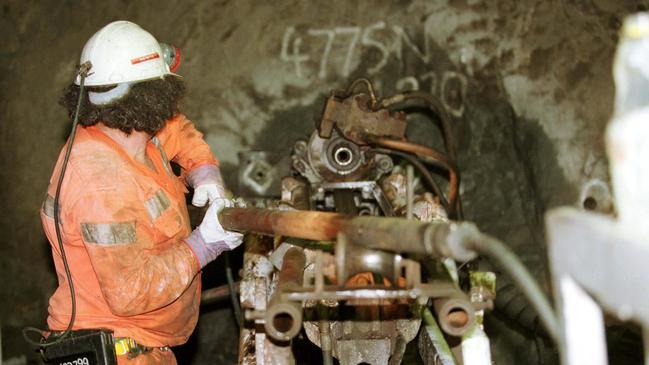
As a FIFO (fly in, fly out) worker, the mining company you work for will also usually cover the costs of your accommodation, meals and travel.
Your duties could involve digging trenches, conducting equipment check, cleaning and maintaining rigs, loading and unloading heavy vehicles, handling samples and driving.
FIFO commercial chef: $90k – $130k
Miners need to eat, and to satiate the hearty appetites of hard labourers many mining companies operate full kitchens to provide meals for workers. For those who work in the food service industry, fly in, fly out work can be lucrative. Qualified chefs (those who hold a Certificate III or above in commercial cookery) can start out on $90,000 plus, while sous chef and head chef jobs paying up to $130k are also up for grabs.
Massage therapist: $70k – $120k
Remedial masseur jobs are going for up to $134,400 on Adzuna, more than twice the typical salary for a massage therapy listed on Seek. Completing a Diploma of Remedial Massage, which takes between 8 months and a year fee-free at TAFE can bring about a pay bump, with pay-by-the-hour positions most common.
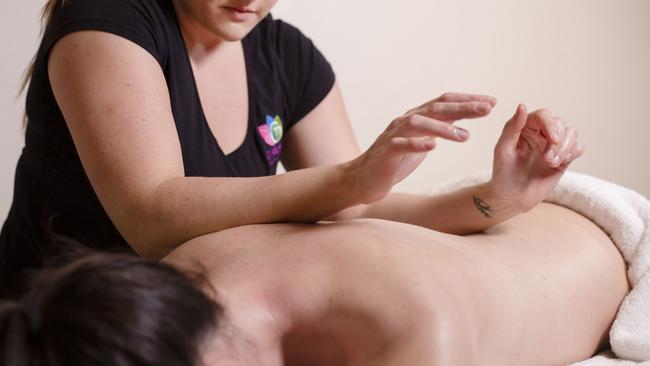
Train driver: $120k – $140k
Like truck and bus drivers, train drivers are in high demand, with patronage on Sydney rail services rebounding post-Covid and projected to double, with two million journeys each weekday by 2026. Sydney Trains offers an $82,000 one-year traineeship for aspiring drivers – the only prerequisites are to be aged 18 or over and to be an Australian citizen or permanent resident.
Once qualified, the average earnings for train drivers across the country range from $120,000 to $140,000.
Real estate/buyer’s agent/property manager: $100,000+
Working in real estate will require you to be registered through Fair Trading NSW, and to qualify for an assistant agent’s certificate of registration you’ll need to complete a five-unit course. After 12 months and under the supervision of a licensed real estate agent, you can apply for a class two licence, and two years later you can graduate to a class 1 licence – under which you can run your own business.
While it may sound onerous, and salaries for absolute beginners start at about $60,000, commission on your sales can help you bring home some serious bacon.
You can undertake your Certificate IV in Real Estate Practice independently or with help from an agency, and while you’re completing your training, why not pick up a job as the personal assistant to the principal at an agency you’re interested in working at? Agencies are hiring PAs and EAs for up to $100k.





